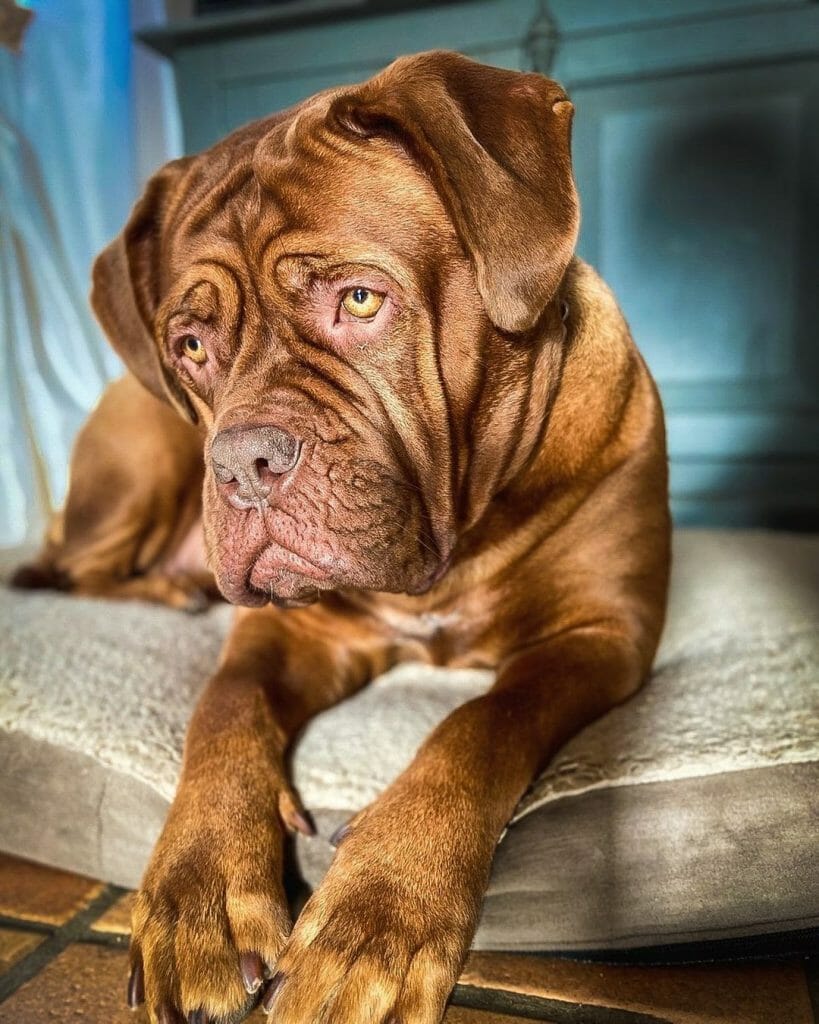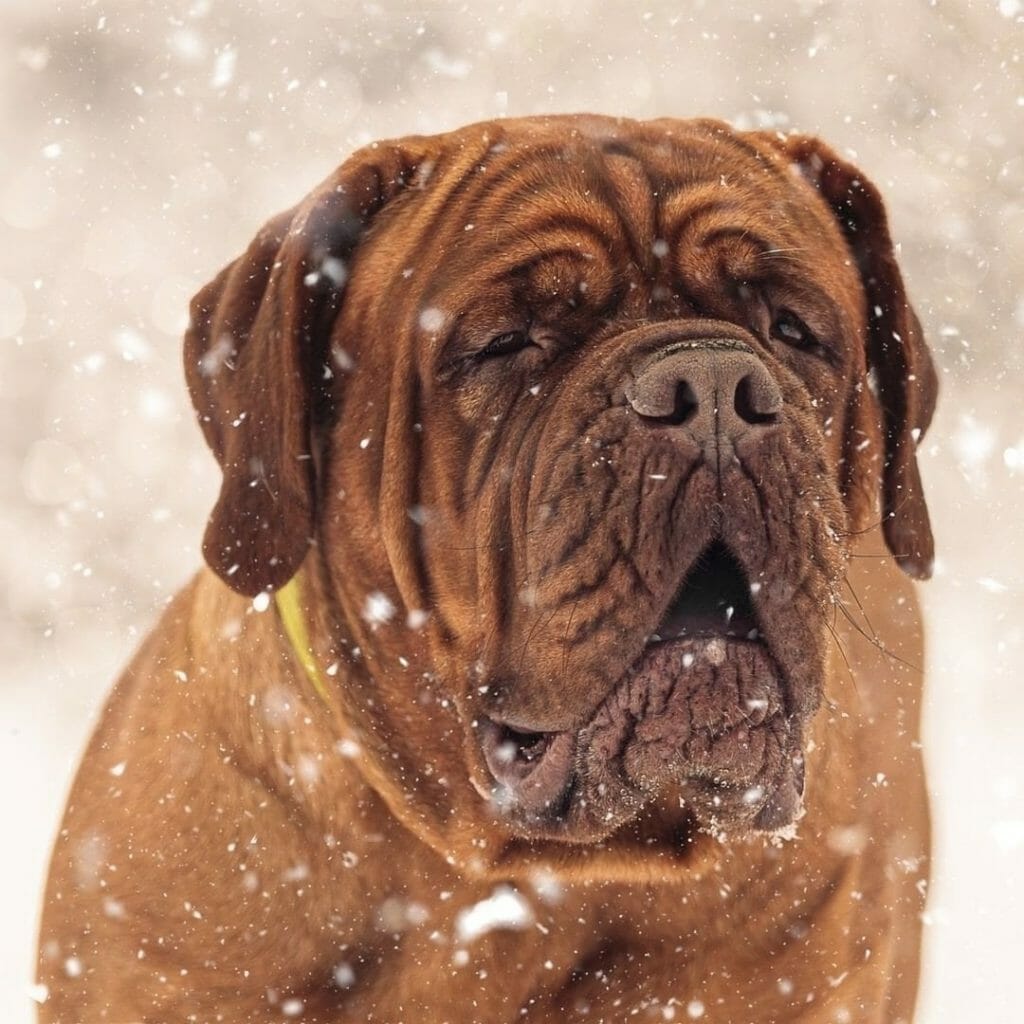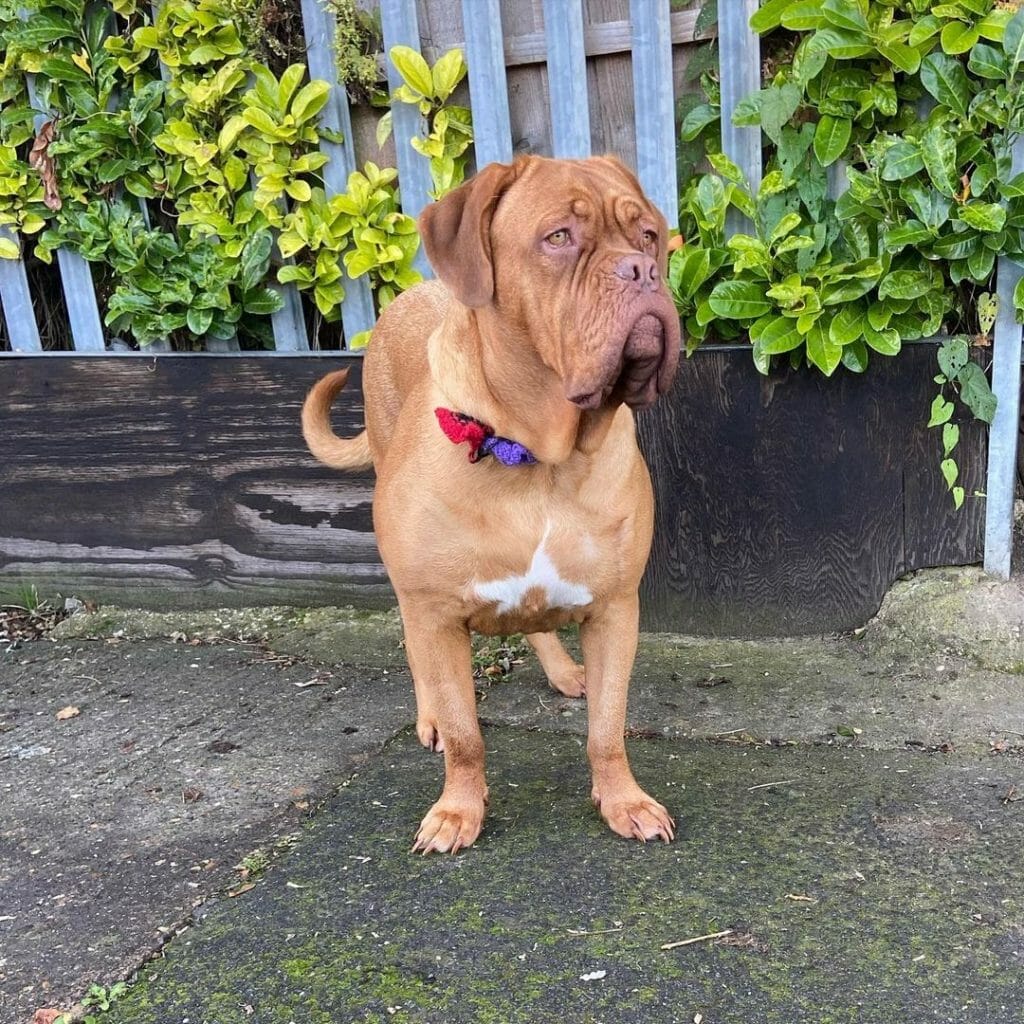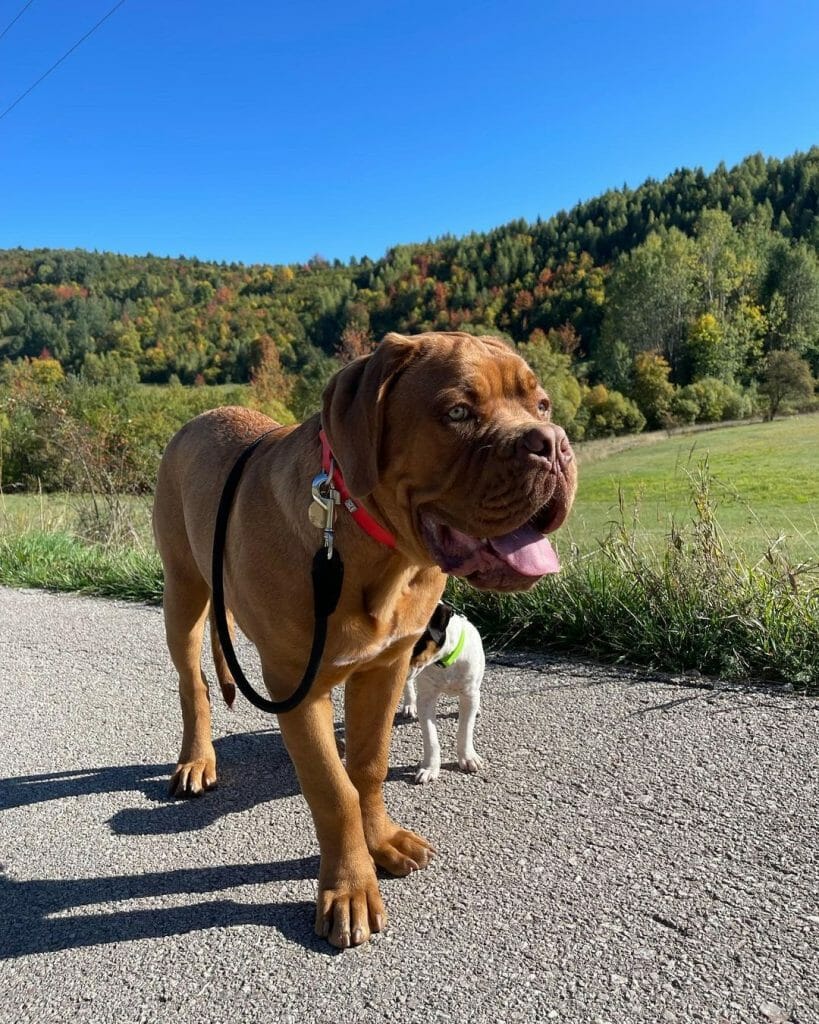What Does Dogue de Bordeaux Mean? History and Meaning


Various dog breeds were reasonably named after what they are specifically bred for. An example would be the Poodle whose name comes from a German word “Pudel” that roughly translates to “one that plays with water”. Meanwhile, Bulldogs were named after the word “bull-baiting”, an event for entertainment that the said dog breed frequently participated in.
But how about the Dogue de Bordeaux? His name sounds foreign and uneasy to quickly understand. Perhaps, some of us do not even know how to pronounce the name. Anyhow, the meaning behind the name is not as complex as it sounds. It simply means “Mastiff of Bordeaux”.
To better understand how this dog got his name, this whole article is dedicated to putting into detail his history and other more interesting information!
Table of Contents
The History Behind the Name


The Dogue de Bordeaux is a well-known Mastiff breed that originates from France. The word Dogue means “Mastiff” and Bordeaux was added in to pay homage to where he actually came from which was in the city of Bordeaux. It was around the 14th century when this large dog started to exist and several years after, the name became popular and was used as a reference for two varieties of the said breed.
Dogues and Doguins. These dogs branch from the main Dogue breed. They have one distinction which is size. The Dogue was larger and heavier than the Doguin and for some reason, the latter ceased to exist and is now considered to be extinct.
Some records suggest that although the Dogue de Bordeaux is around for many decades already, the start of his emergence doesn’t automatically mean he was named “Dogue de Bordeaux” right away. Instead, the name was given after the first canine exhibition in 1863 which took place at the “Jardin d’Acclimatation” in Paris, France. Magentas, a female Bordeaux, was the French Mastiff breed winner. It was by then that the dog was granted the name of its capital region of origin hence we know him today as the “Dogue de Bordeaux”.
Definition of Dogue de Bordeaux
For those who have not heard of the Dogue de Bordeaux yet, it could be hard to imagine what the dog looks like let alone even immediately think that this is a dog breed’s name! The Dogue de Bordeaux, aside from the given translation of its name, has more meaning to it.
By definition, the Dogue de Bordeaux refers to a large dog that belongs to the Mastiff family which is generally known for the massive sizes of the breeds that fall under its category. The Mastiffs originate in various countries just like the Dogue de Bordeaux, but all of them are believed to be the descendants of the great Roman war dogs or ancient dogs such as the Molossian hound.
Let us further dissect what the Dogue de Bordeaux is all about:
Physical Appearance
The Dogue de Bordeaux, according to the breed standards, means a Mastiff-type dog that stands up to 23 to 27 inches with a weight that exceeds 99 or 110 pounds depending on the gender. He must have a stocky build but athletic impression with four sturdy legs and a tapering tail.


His snout is short and that places him under brachycephalic breeds. With that being said, he’s at risk of having breathing problems. He has a pair of triangular ears that fold down and are angled slightly to the front. The nose complements the coat color so it could either be brown or isabela.
A few wrinkles are present in the Dogue de Bordeaux and his muzzle is wide. Often, you will catch him panting to cool off his easily overheating body.
Temperament
When you hear the name Dogue de Bordeaux, people who are familiar with the breed immediately associate the dog with a particular temperament. Dogues are imposing and intimidating without a doubt, but they turn out to be the most caring and devoted dogs there are as long as they are properly socialized.
The Dogue de Bordeaux temperament simply indirectly translates to a large French Mastiff dog who has the natural inclination to guard and protect but has low levels of interest to show aggression compared to other dog breeds of the same purpose.


It is important to understand that this dog bearing the name “Dogue de Bordeaux” is a powerful one, therefore, all interactions he does with toddlers and smaller animals need to be supervised. Nevertheless, relate his name as well to a description consisting of words that tell that he is laid-back, loving, and gentle toward his family.
How Is Dogue de Bordeaux Pronounced?
You are not the only one struggling to pronounce the Dogue de Bordeaux name. Phonetically, the correct way to enunciate the full name of the dog breed is “dohg duh bore-doe”.
Check out the youtube link below if you want to listen to how others would pronounce it:
How to Pronounce Dogue de Bordeaux | Dogue de Bordeaux Pronunciation
Since it is French and the spelling of the breed’s name isn’t something you would commonly encounter, knowing how to pronounce it properly is somehow important. French people have a sharper effect on how to utter the dog breed’s name compared to how it is said in other accents.
What Do Other Countries Call the Dogue de Bordeaux?
Most countries aside from France have many names for the Dogue. Generally, the dog is widely known as just the Dogue de Bordeaux or French Mastiff for those who don’t want to struggle to pronounce the original name. Others would also call him the Bordeaux Mastiff or resort for a shorter name such as Bordeauxdog.
3 Variety Names of the Dogue de Bordeaux
Aside from the earlier mentioned varieties of the Dogue de Bordeaux, several accounts also tell that there are three more varieties that are worth mentioning. They appeared in the mid to late 19th century in France.
The Parisian
The Parisian is defined to be a dog that is highly related to the Dogue de Bordeaux whose highlighted features consisted of a heavier weight and more wrinkles. He came from the Region of Paris, hence the name.
The Toulouse
The Toulouse dog means a canine with a smaller yet broader head but it is much heavier. Compared to the other variations of the Dogue, the Toulouse had more natural color variations. As with the name, you can tell that the Toulouse comes from the Toulouse city of France.
The Bordeaux
The Bordeaux is the last variation and he is believed to be the closest version of the Dogue de Bordeaux that we know of today.
These three classifications were not just named after their places of origins but as well as linked to the specific jobs they used to receive whether it be a hunting job, guarding duty, or a fighting career.
Now that you know in detail how the Dogue de Bordeaux name came about, the next time you hear the breed’s name, you’ll have a more vivid detail regarding what the term is associated with, how to pronounce it, and what its synonyms are!
